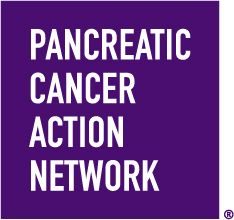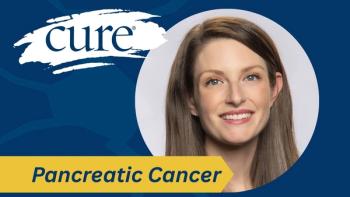
Adaptive Clinical Trial Design Aims to Accelerate Research and Approvals in Pancreatic Cancer

The research process for pancreatic cancer is long and difficult, but a new method of clinical trials is looking to adapt to a growing field and find ways to speed up research without losing efficiency.
Pancreatic cancer is a difficult disease to treat and one that has not benefited from many new therapies in recent years. That’s why the Pancreatic Cancer Action Network is sponsoring a clinical trial that will test a variety of medicines in different groups of patients at the same time, which will speed up research and could lead to quicker drug approvals.
In an interview with CURE®, the study’s lead investigator, Dr. Andrew Hendifar, explained how
“Precision Promise is permanent… like a movie theater. Instead of setting up the circus, all you have to do is just change the reel, and you'll play a different movie each time.”
Hendifar, who is also medical director of the Pancreatic Center, and an assistant professor of medicine at Cedars-Sinai in Los Angeles, went on to detail how this trial design will hopefully save money and make it easier for patients to access care, all while bringing new therapies to market faster.
Transcription:
A big problem with pancreas cancer trials designed to date has been, unfortunately, when the results are that this medication that we're studying is not working very well, it takes a long time to learn. And sometimes that takes three or four years to finally get to the result that this medication is not something we should be looking at further. And to compound that, most clinical trials, because they're asking a very specific question, they don't have the ability to answer some of the questions that are facing pancreatic cancer patients in general.
So, when we came together as physicians, as educators, as patients, as patient advocates, as institutions, we really started to try to figure out how can we do this differently, because the disease is so difficult, patients are suffering such a great deal, breakthroughs are happening at a slow pace, we have to do something different. And when we got everybody together, it was funny, because when we first started out thinking about how to do this the right way, we had some good ideas, but we also had a lot of bad ideas. And it took many, many years for us to realize that the only way to do this successfully would be an adaptive, platform-based trial that we have today.
So, in this trial that we're doing, it's unlike other trials. I consider most clinical trials like a circus: you go from one town to another, you set up this big tent, you get everything in there, you have your performance, then you close up the tent, and you leave town. And a lot of clinical trials are like that: they're temporary, they answer one question, they leave.
Precision Promise is permanent, is going to be here forever, hopefully, or for a long time. And what it does is, it's like a movie theater. Instead of setting up the circus, all you have to do is just change the reel, and you'll play a different movie each time. And whatever is going to work is going to work. And if it doesn't work, you just simply pull that out and you put a new reel in.
What's really neat about Precision Promise and about using an adaptive trial, is that the patients are randomized not just based on what's available but based on what's working the best. So, we can answer questions more quickly. So, the cream will rise to the top, good studies that are working really well will fill up quickly, and we'll get our answer quickly.
A usual trial uses a control arm. In every study, patients hate that part of it. They're like, I want to be on a study, but I don't want to be on a placebo. That's the number one complaint. I totally get it; who would want to be on placebo on a clinical trial? But the good thing about a platform trial is, instead of comparing one new medicine to a placebo, you're comparing 10 new medicines to a placebo. So that means that only one out of the 10 have to be on a placebo arm versus one out of two. So, it becomes a much more efficient way to study this.
And then another thing that's really neat about the control arm and Precision Promise is that it's something that becomes permanent. It becomes its own story: what's the standard of care for pancreas cancer? As time goes on, the control arm changes because we do change how we do things. And that and that control arm will adapt as well. So, in that sense, the trial is very, very innovative, very patient-friendly, clinician friendly, and we're incredibly excited to do it.
It also brings the cost down for clinical trials and an immense amount. If you think about it, you don't have to pay to set up all the infrastructure, the infrastructure is already there, you don't have to pay to break it back down. It's more efficient in terms of the number of patients that you need, because you have a control arm that exists in perpetuity, you don't have to enroll a new control arm for each study. So that makes the trials much more affordable. And we hope that that means that some of the ideas we can develop don't have to depend on who has the biggest bankroll or who has the most money. We're excited about that part too.
And because this is a permanent study, and it's really designed to improve the care of pancreas cancer, we're able to answer questions that are not just what's the best new medicine? Sometimes the question questions are simply, you know, do pancreatic enzymes help patients with this disease? So, we're going to help try to answer that question.
We're going to (learn about) physical fitness. How important is that if you have pancreas cancer? We're able to answer that question by giving FitBits to patients who are on the trial.
We're also going to try to answer questions, does do treatments, and different interventions change your body composition? We're able to, you know, have the expertise and study those types of questions. So, because it's a more permanent structure, we're really able to do things and most clinical trials can’t.




